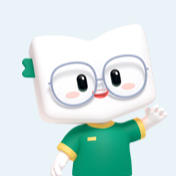
6月16日,苹果CEO蒂姆·库克作为斯坦福大学的毕业典礼致辞嘉宾发表了讲话。
1982年毕业于奥本大学工业工程专业。1988年获得杜克大学企业管理硕士学位。曾在IBM供职12 年,负责PC部门在北美和拉美的制造和分销运作。1998年年初,库克进入苹果,任副总裁,主管苹果的电脑制造业务。 2011年接替乔布斯担任苹果公司CEO。
库克斯坦福演讲中表示,希望学生们能够成长为创造者,学会承担责任。
Following is the prepared text of the address by Tim Cook, CEO of Apple, for delivery at Stanford’s 128th Commencement on June 16, 2019.
Good morning, Class of 2019!
Thank you, President Tessier-Lavigne, for that generous introduction. I’ll do my best to earn it.
Before I begin, I want to recognize everyone whose hard work made this celebration possible, including the groundskeepers, ushers, volunteers and crew. Thank you.
I’m honored and frankly a little astonished to be invited to join you for this most meaningful occasions.
Graduates, this is your day. But you didn’t get here alone.
Family and friends, teachers, mentors, loved ones, and, of course, your parents, all worked together to make you possible and they share your joy today. Here on Father’s Day, let’s give the dads in particular a round of applause.
Stanford is near to my heart, not least because I live just a mile and a half from here.
Of course, if my accent hasn’t given it away, for the first part of my life I had to admire this place from a distance.
I went to school on the other side of the country, at Auburn University, in the heart of landlocked Eastern Alabama.
You may not know this, but I was on the sailing team all four years.
It wasn’t easy. Back then, the closest marina was a three-hour drive away. For practice, most of the time we had to wait for a heavy rainstorm to flood the football field. And tying knots is hard! Who knew?
Yet somehow, against all odds, we managed to beat Stanford every time. We must have gotten lucky with the wind.
Kidding aside, I know the real reason I’m here, and I don’t take it lightly.
Stanford and Silicon Valley’s roots are woven together. We’re part of the same ecosystem. It was true when Steve stood on this stage 14 years ago, it’s true today, and, presumably, it’ll be true for a while longer still.
The past few decades have lifted us together. But today we gather at a moment that demands some reflection.
Fueled by caffeine and code, optimism and idealism, conviction and creativity, generations of Stanford graduates (and dropouts) have used technology to remake our society.
But I think you would agree that, lately, the results haven’t been neat or straightforward.
In just the four years that you’ve been here at the Farm, things feel like they have taken a sharp turn.
Crisis has tempered optimism. Consequences have challenged idealism. And reality has shaken blind faith.
And yet we are all still drawn here.
For good reason.
Big dreams live here, as do the genius and passion to make them real. In an age of cynicism, this place still believes that the human capacity to solve problems is boundless.
But so, it seems, is our potential to create them.
That’s what I’m interested in talking about today. Because if I’ve learned one thing, it’s that technology doesn’t change who we are, it magnifies who we are, the good and the bad.
Our problems – in technology, in politics, wherever – are human problems. From the Garden of Eden to today, it’s our humanity that got us into this mess, and it’s our humanity that’s going to have to get us out.



